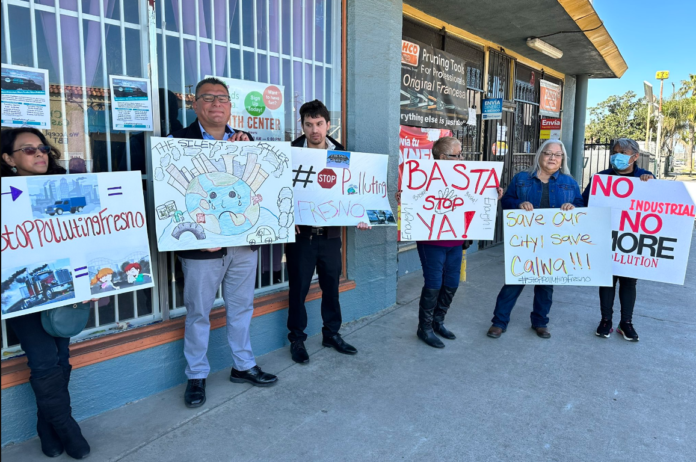California Construction News staff writer
South Fresno residents opposed to the $105 million Highway 99 corridor project are suing Caltrans and the Federal Highway Administration in Federal District Court for approving a project that would rebuild and expand two interchanges-at North Avenue and American Avenue in Fresno.
The lawsuit claims the already heavily traveled roads in Malaga, Calwa and South Fresno will be inundated by more industry, big rigs and pollution.
“Tackling challenges that prevent our communities from achieving well-being is not new to us,” Sandra Caledon wrote in the April Building Healthy Communities Fresno newsletter. “Consistently, we see those in power ignore and neglect the needs of many neighbors, especially low-income communities of color.
“We are proud to stand with Friends of Calwa, Leadership Counsel for Justice and Accountability, and the Stanford Environmental Law Clinic in suing Caltrans and the Federal Highway Administration in federal district court over their rushed approval of a project to reconstruct and expand two interchanges along State Route 99 in South Fresno.”
Opponents say the project would increase the capacity for heavy-duty truck traffic to flow into local low-income communities of color and unleash further industrialization in these already overburdened neighborhoods.
“For years, residents have demanded that their neighborhoods receive real transportation investments that center people and help ease the burden of pollution,” said. “Yet, Caltrans and the Federal Highway Administration continue to view our communities as dumping grounds for polluting industrial businesses and diesel truck traffic.
“Our core mission at Fresno BHC is to foster and encourage thriving communities, which requires that we stand up to agencies that want to continue to inflict their racist and exclusionary polices on the most vulnerable.”
The lawsuit claims that Caltrans’ review of the project “fell significantly short” and an environmental impact report “failed to acknowledge the existence of any impacted communities or sensitive receptors.” The project also “failed to consider conflicts with air quality and land use plans and policies or the cumulative impacts of the project with other projects up and down the 99 corridor,” the lawsuit states.














